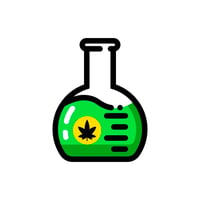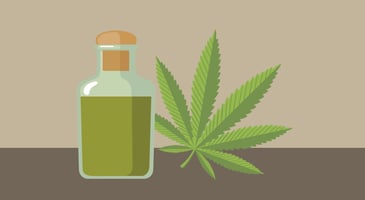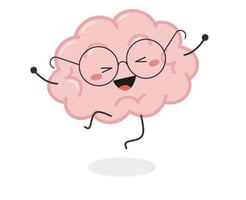Surgeons Interested in Using Cannabidiol (CBD) as a Potential Pain Management Strategy After Surgery
Orlando, FL, October 18,2019 A comprehensive study and analysis. Orthopedic surgeons expressed...
The Silent Struggle: Veterans, PTSD, and the Opioid Epidemic
The PTSD Crisis Among Veterans: A Deep Dive
War's end does not always signify peace for those who have faced its horrors. For countless veterans, coming home signifies the onset of a new, internal conflict - a relentless struggle against the haunting specters of combat experiences and the deep emotional wounds they inflict. Data from the Veterans Association paints a somber picture of this reality, revealing that an alarming 20% of veterans who served in the Middle East are burdened with Post Traumatic Stress Disorder (PTSD)1.
PTSD, a complex mental health condition, is characterized by a range of symptoms that can deeply impact an individual's daily life. These symptoms can manifest as vivid and distressing flashbacks to traumatic events, periods of intense anxiety, bouts of depression, and even dissociative episodes where the individual feels detached from reality. The weight of these symptoms often makes it challenging for veterans to reintegrate into civilian life, as the echoes of war continue to reverberate in their minds, affecting their relationships, work, and overall well-being.
The profound impact of PTSD extends beyond the individual, affecting families, communities, and society at large. As we strive to understand and address this issue, it becomes imperative to provide comprehensive support and interventions tailored to the unique needs of veterans, acknowledging the sacrifices they've made and the battles they continue to fight long after the war is over.
In 2017, a somber statistic emerged, casting a shadow on our understanding of the challenges veterans face upon returning home. An average of 20 veterans, heroes who once bravely defended their nation, were lost to suicide each day1. This staggering number is a poignant reminder of the profound struggles many veterans grapple with as they attempt to transition back into civilian life. The traumas of war, both physical and psychological, often leave indelible scars, pushing these individuals towards feelings of hopelessness and despair.
The challenges don't end there. An alarming number of veterans find themselves without a home, wandering the streets of the very nation they once protected. Others are ensnared in the clutches of addiction, seeking solace in substances to numb the pain and memories of combat. The opioid crisis, in particular, has disproportionately affected the veteran community. These potent painkillers, often prescribed to manage combat-related injuries, offer temporary relief. However, their prolonged use can lead to a dangerous dependency, further exacerbating the mental health challenges many veterans already face.
The over-prescription of opioids has become a significant concern. While these drugs can be effective in alleviating acute pain, their potential for addiction and the subsequent risks they pose cannot be overlooked. The path from prescription pain relief to addiction is a slippery slope, and for many veterans, it's a descent into a cycle of despair and self-destruction.
As we reflect on these realities, it becomes evident that a multi-faceted approach is needed to support our veterans. Addressing the opioid crisis, enhancing mental health services, and providing comprehensive reintegration programs are crucial steps in ensuring that those who served their country receive the care and support they so rightfully deserve.
The opioid crisis has swept across nations, leaving in its wake countless stories of addiction, despair, and loss. For the veteran community, this crisis has taken on an even more poignant dimension. These brave individuals, who once faced the horrors of war, now find themselves battling a different kind of enemy: opioid addiction.
Opioids, powerful painkillers, are often prescribed to veterans to help them manage the chronic pain resulting from injuries sustained during combat. Initially, these drugs offer a reprieve, a chance to live without the constant reminder of physical trauma. However, with time, what starts as a medical intervention can morph into a crippling dependence. The very drugs meant to alleviate pain begin to cast a dark shadow over the lives of those who take them.
In 2016, a staggering 66,000 veterans sought treatment for opioid dependence1. This number is not just a statistic; it represents 66,000 individual stories of struggle, resilience, and the quest for healing. It underscores the magnitude of the challenge and serves as a stark reminder of the unintended consequences of prolonged opioid use.
The ripple effects of this dependence are manifold. Beyond the physical addiction, opioids can exacerbate existing mental health challenges. Veterans, many of whom already grapple with conditions like Post Traumatic Stress Disorder (PTSD), anxiety, and depression, find their symptoms intensified. Mood disturbances become more frequent, sleep patterns are disrupted, and feelings of despair can deepen.
As we confront the opioid epidemic, it's crucial to recognize its unique impact on the veteran community. Addressing this issue requires a multi-pronged approach, one that not only focuses on reducing opioid prescriptions but also offers comprehensive support, alternative pain management strategies, and mental health resources tailored to the specific needs of veterans.
CBD: A Ray of Hope in the Midst of Crisis
Amidst this backdrop, Cannabidiol (CBD) emerges as a potential beacon of hope. CBD, a non-psychoactive compound derived from the cannabis plant, has garnered attention for its potential therapeutic benefits, including pain relief, anti-inflammatory properties, and mood regulation4. The adage, "There is nothing more virtuous than a clear and focused mind," resonates deeply when considering the potential of CBD as an alternative to opioids, especially for veterans battling PTSD and related ailments.
Research has shed light on CBD's efficacy in managing symptoms of PTSD and anxiety. One study indicated that CBD was particularly effective for individuals who experienced anxiety due to specific triggers or traumatic events5. For veterans, who often grapple with sudden episodes of intense anxiety or flashbacks, CBD could offer a semblance of calm and reduce the frequency of these episodes.
A pivotal study in 2015, titled 'Cannabidiol as a Potential Treatment for Anxiety Disorders', delved into the potential of CBD in managing PTSD symptoms5. The research highlighted that CBD, when administered after a stress-inducing event (like predator stress, a model for PTSD), could reduce the long-lasting anxiety effects of such stress. This effect was attributed, in part, to the activation of the 5-HT1AR receptor5. Another intriguing finding was CBD's potential to increase levels of anandamide (AEA) in the hippocampus, a neurotransmitter associated with mood regulation and stress response5.
Conclusion: Towards a Holistic Approach to Veteran Care
While CBD is not a panacea, its potential benefits in the realm of addiction treatment and PTSD management cannot be overlooked. As we strive to provide the best care for our veterans, it's imperative to explore all avenues that might offer relief from the profound challenges they face. With rigorous research and a commitment to evidence-based practice, CBD might just pave the way for a brighter, healthier future for our veterans.
The Opioid Crisis and Its Impact on Veterans
Opioids, prescribed to manage pain from combat-related injuries, often become a double-edged sword. While they provide temporary relief, their prolonged use can lead to dependence, exacerbating mental health issues like anxiety, mood disturbances, and sleep disorders. The year 2016 saw 66,000 veterans seeking treatment for opioid dependence3, a testament to the scale of the problem.
CBD: A Ray of Hope in the Midst of Crisis
In the complex landscape of pain management and mental health treatment, Cannabidiol (CBD) is emerging as a promising alternative. Derived from the cannabis plant, CBD is a non-psychoactive compound that has been the subject of increasing scientific interest and research1. Unlike THC, another compound found in cannabis, CBD does not produce a "high" but has been associated with a range of potential therapeutic benefits.
The increasing opioid crisis, especially among veterans, necessitates the exploration of safer, effective alternatives for pain and symptom management. CBD, with its reported anti-inflammatory, analgesic, and anxiolytic properties, stands out as a potential candidate1. The ancient wisdom, "There is nothing more virtuous than a clear and focused mind," takes on renewed significance in this context. If CBD can provide relief without the risk of addiction or significant side effects, it could revolutionize the way we approach treatment, especially for veterans contending with the multifaceted challenges of PTSD and associated conditions.
The scientific community has been actively investigating the potential benefits of CBD, especially in the realms of mental health and well-being. Preliminary research suggests that CBD may be particularly beneficial for individuals who experience anxiety and distress in response to specific triggers or traumatic memories2. This is especially relevant for veterans, many of whom face the daunting challenge of PTSD, characterized by sudden, intense episodes of anxiety, flashbacks, and distressing memories of traumatic events. If CBD can offer a modulating effect, helping to stabilize mood and reduce the intensity and frequency of these episodes, it could be a game-changer.
However, while the potential of CBD is exciting, it's essential to approach its use with caution and a commitment to evidence-based practice. As research continues, it will be crucial to understand the optimal dosages, administration methods, and potential interactions with other medications. Only with rigorous scientific inquiry can we ensure that CBD is both safe and effective for those who need it most.
Post Traumatic Stress Disorder (PTSD) is a profound mental health condition that affects countless individuals, leaving them grappling with haunting memories, intense anxiety, and debilitating flashbacks. Finding effective treatments for PTSD is of paramount importance, and in recent years, the potential role of Cannabidiol (CBD) in this realm has come to the forefront of scientific inquiry.
In 2015, a groundbreaking study titled 'Cannabidiol as a Potential Treatment for Anxiety Disorders' took a deep dive into the therapeutic potential of CBD, especially concerning Post Traumatic Stress Disorder (PTSD)1. This research was not just another addition to the growing body of literature on CBD; it was a pivotal exploration that shed light on how CBD could play a transformative role in managing the harrowing symptoms of PTSD.
One of the standout findings of this study was the observation that CBD, when introduced to the system following a traumatic or stress-inducing event (akin to the predator stress model, which is often used as a representation of PTSD), had the potential to significantly diminish the prolonged and intense anxiety effects associated with such traumatic experiences1. This is monumental for those suffering from Post Traumatic Stress Disorder, as managing these anxiety effects is often one of the most challenging aspects of the condition.
Delving deeper into the mechanisms at play, the study attributed this anxiety-reducing effect of CBD, in part, to its interaction with the 5-HT1AR receptor1. This receptor plays a crucial role in mood regulation and the body's response to stress, making its activation by CBD particularly significant in the context of PTSD.
Furthermore, the research illuminated another promising aspect of CBD's potential benefits for Post Traumatic Stress Disorder. It highlighted CBD's capacity to elevate the levels of anandamide (AEA) in the hippocampus1. Anandamide, often referred to as the "bliss molecule," is a neurotransmitter intricately linked with mood regulation, happiness, and our physiological response to stress. An increase in its levels, facilitated by CBD, could offer profound benefits for those battling the shadows of PTSD.
In conclusion, as the world grapples with the complexities of Post Traumatic Stress Disorder, studies like these offer a beacon of hope. They underscore the potential of CBD as a powerful tool in our arsenal against PTSD, paving the way for more comprehensive research and, hopefully, more effective treatments for those affected by this condition.
Conclusion: Towards a Holistic Approach to Veteran Care
In the vast landscape of therapeutic interventions, Cannabidiol (CBD) stands out as a promising candidate, especially when considering the unique challenges faced by our veterans. While it's crucial to approach any potential treatment with a balanced perspective, understanding that no single solution is a cure-all, the emerging evidence surrounding CBD's potential benefits, particularly in the domains of addiction treatment and Post Traumatic Stress Disorder (PTSD) management, is compelling.
Our veterans, having selflessly served and faced the harrowing realities of combat, often return with deep emotional and physical scars. Post Traumatic Stress Disorder, a condition characterized by intense flashbacks, anxiety, and emotional distress, is unfortunately a common aftermath of such experiences. Moreover, the journey of reintegrating into civilian life is fraught with challenges, leading some veterans down the path of substance dependence as they seek relief from their pain.
In this context, the potential role of CBD becomes particularly significant. Preliminary studies and anecdotal evidence suggest that CBD might offer tangible benefits in mitigating the symptoms of PTSD, providing a semblance of calm and reducing the intensity and frequency of traumatic flashbacks. Furthermore, its potential role in addiction treatment, especially as an alternative to more addictive substances, is a topic of growing interest in the medical community.
As we navigate the complexities of providing comprehensive care for our veterans, it becomes imperative to leave no stone unturned. Every potential avenue of relief, every therapeutic intervention that might alleviate their suffering, deserves thorough exploration. In this endeavor, CBD emerges as a potential beacon of hope. Its multifaceted therapeutic properties, combined with its non-addictive nature, position it as a candidate worthy of rigorous scientific investigation.
However, it's essential to approach this with a commitment to evidence-based practice. While the anecdotal accounts and preliminary studies are promising, comprehensive clinical trials and in-depth research are crucial to ascertain CBD's efficacy and safety in these contexts. Only with such rigorous scrutiny can we ensure that we are truly offering the best possible care to our veterans.
In conclusion, as we strive to honor and support our veterans, ensuring they have access to the most effective treatments is paramount. With continued research and an open-minded approach to emerging therapies like CBD, we might just be paving the way for a brighter, more hopeful future for those who have given so much for our nation.
Veterans Association Report on PTSD ↩
VA National Suicide Data Report ↩
Veterans and Opioid Overdose ↩
Cannabidiol in Anxiety and Sleep ↩
'Cannabidiol as a Potential Treatment for Anxiety Disorders' ↩ ↩2 ↩3 ↩4

Orlando, FL, October 18,2019 A comprehensive study and analysis. Orthopedic surgeons expressed...

To reframe the discussion on the safety, regulatory considerations, and the overall profile of...

Adenosine's Role in Sleep and Brain Function Adenosine is a neurotransmitter naturally present in...